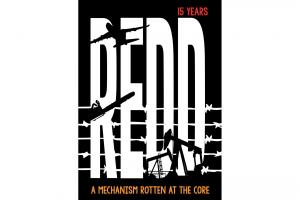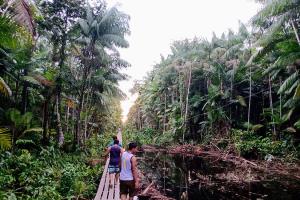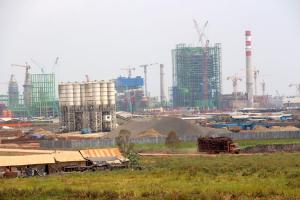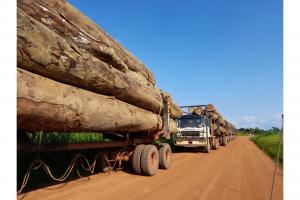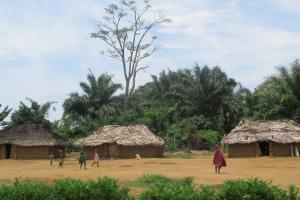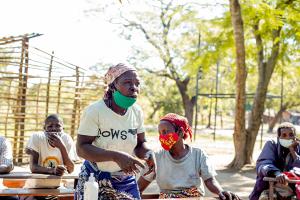Carbon offsetting and REDD
Reducing Emissions from Deforestation and Degradation (REDD+) has become the dominant international forest policy. Variations of REDD+ include Nature-Based Solutions and corporate pledges to achieve Zero Net Deforestation. In reality, though, deforestation continues, polluting companies use REDD+ offsets to avoid reducing their fossil fuel emissions, and zero-net deforestation pledges allow forests to be cleared in one area as long as an “equivalent” area is restored elsewhere.
Publications
9 November 2022
Amid the flurry of news about investments in carbon markets, a new WRM study has taken a closer look at a REDD initiative underway in the municipality of Portel, in the state of Pará in the Brazilian Amazon. The case illustrates what is known as "carbon colonialism".
Articles
17 October 2022
On 3 November, join a conversation to reflect on “15 Years of REDD: A Mechanism Rotten at the Core”.
Bulletin articles
11 October 2022
Industrial tree plantations have always been about corporate control over community fertile lands. The monoculture model inherently endangers communities’ survival, food sovereignty and autonomy, deepens the violence of patriarchy and racism while enforcing the same destructive and oppressive way of organizing land (and thus, people) as the one enforced during the colonial era.
Bulletin articles
16 June 2022
Fossil fuels are at the root of the climate chaos – but the conditions for this crisis have been created by the interconnections and dependencies between colonialism, racism, patriarchy and class exploitation. To address climate chaos, therefore, it is necessary to address the unequal relationships of power upon which a fossil-fuel dependent capitalism is based.
Bulletin articles
16 June 2022
More than 10 million hectares in Indonesia are controlled by the pulp and paper industry, mainly by two giant corporations: APP and APRIL. Despite the companies’ commitments to protect forests and peatland, both keep being associated with deforestation, forest fires and to a business model of violence, criminalization and dispossession of forest communities. (Available in Bahasa Indonesia)
Action alerts
10 June 2022
(Only in Portuguese) Será realizada no dia 11 de junho em Cruzeiro do Sul, Acre, Brasil
Articles
29 April 2022
These readings are part of the publication "15 Years of REDD: A Mechanism Rotten at the Core"
Articles
29 April 2022
Offsetting is a dangerous distraction from the root causes of the climate crisis. This false solution is the flip side to the oil’s industry initial reaction to climate science: denial. Big Polluters did not invent carbon trading. But they have supported, heavily lobbied for and promoted carbon trading.
Articles
29 April 2022
At the UN climate conference in 2021, the government of Gabon presented itself as champion in the fight against climate breakdown. Would fossil fuel extraction in Gabon come to an end? No. At its core are a deal signed in 2019 with the fossil fuel producer Norway and the Grande Mayumba project.
Articles
29 April 2022
The design of the complaint mechanism has systematically failed to resolve the communities' complaints. But then, why does this mechanism exist?
Articles
28 April 2022
The UK company Envirotrade began a REDD+ project in 2003 that involved communities in the buffer zone of the Gorongosa National Park. In 2018, the company abandoned the region, leaving behind unfulfilled obligations, debts to villagers and hundreds of perplexed families.

